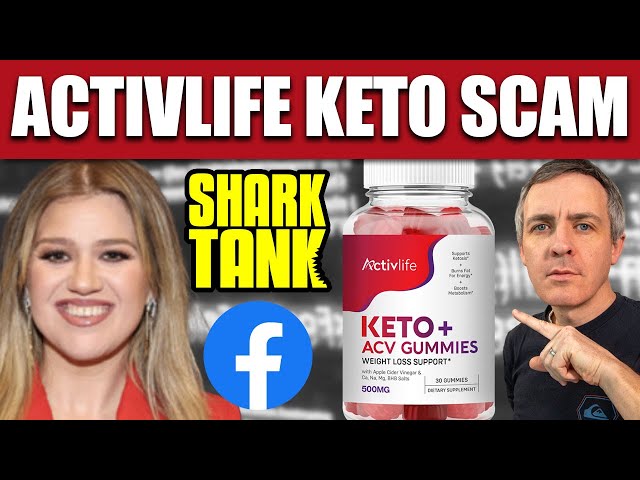
Have you ever come across ads claiming that Shark Tank judges endorse magical keto pills that promise quick weight loss? If you have, you're not alone. The internet is rife with such claims, but is there any truth behind them? Let's examine the situation surrounding Shark Tank Keto Pills, focusing on the hype, the scams, and what experts really have to say.
In recent months, social media has buzzed with discussions not just about keto dieting itself but also about these so-called Shark Tank Keto Pills. Many individuals who hope to trim their waistlines have been led to believe they can achieve rapid results merely by popping these pills. As one user stated in a forum, "I thought if it’s on Shark Tank, it must be legit!" But is that really the case?
Contrary to popular belief, there have been no keto pills featured on Shark Tank. Yes, you read that right. Despite the convincing marketing tactics being employed in these ads, the truth is that not a single keto diet pill has ever been pitched to the Sharks. This was confirmed by one of the show's notorious judges, Mark Cuban, who even tweeted about it, stating bluntly that such endorsements are essentially scams.
The concept of Shark Tank Keto Pills gained traction after various advertisements touted approval from Shark Tank, exploiting the show's credibility for profit. Most recently, an investigation into these claims revealed stark realities. As detailed in a recent article, “The truth is, there has never been a keto pill that has been endorsed on Shark Tank,” emphasizing the misinformation swirling on the internet.
Indeed, scams utilizing Shark Tank's name have expanded over the years. AARP provided strong advice regarding these fraudulent schemes, noting that scammers frequently use the show's reputation to lend credibility to dubious products, including keto gummies and pills. This makes it crucial for potential customers to verify claims before purchasing such products.
Let’s delve deeper into why this misinformation is harmful. The keto diet itself—characterized by high fat, moderate protein, and very low carbohydrates—has gained substantial traction as a weight loss solution. However, claims that popping a pill can replicate the diet's effects to achieve ketosis are misleading. As many nutritionists argue, there's no substitute for a balanced diet and proper exercise. Anna and Samantha Martin, who appeared on the show with their product, “CLA Safflower Oil,” received a substantial investment. However, the metrics of success for weight-loss products should not rely solely on thinly veiled endorsements.
Furthermore, the excitement surrounding keto dieting has been misused, creating numerous misleading products aimed at consumers looking for a quick fix. Reviewing trusted consumer health sources reveals that the hype around keto pills often overshadows legitimate advice. One nutritional expert mentioned, "People need to realize that these pills do not promise sustainable weight loss and may even pose health risks." They recommend understanding the science behind the keto diet versus relying on untested supplements.
While many consumers have had success with keto dieting by sticking to whole foods like avocados, nuts, and meats, the allure of a dietary pill cannot be understated. It offers a fantasy—losing weight without the eating restrictions or strenuous workouts commonly associated with the keto lifestyle. Unfortunately, continuing to follow this narrative can lead consumers down a misguided path, prompting increased skepticism about the broader keto diet.
In response to these rampant scams, experts advocate for consumer awareness. Before purchasing dietary supplements, individuals should conduct thorough research. Check the credibility of the product, looking for any scientific proof to back its claims. One important takeaway is to seek resources that cite the products that have genuinely appeared on Shark Tank. As suggested, those products can be found in listings published by the show itself, which affirm the legitimacy of any pitch.With that in mind, caution is advised.
Upon speaking with various users of so-called Shark Tank Keto Pills, inconsistent reports began to emerge, revealing dissatisfaction with results. "I tried those pills I saw on Shark Tank ads, and they did nothing!" remarked one user, a sentiment echoed by many others. This common experience highlights the vital need for skepticism when it comes to efficacy claims made in ads, especially those trumpeting endorsements that are not genuine.
As this saga unfolds in 2024, it becomes clear that vigilance is essential. Always question the authenticity of products marketed under the illusion of fame and credibility, especially those falsely associated with recognized platforms like Shark Tank. It's genuinely worth repeating: If a product claims fame through non-existent endorsements, it's not simply a misleading claim, but potentially a big red flag of a scam.
In conclusion, while the world of keto dieting is filled with exciting possibilities, the shadows of misinformation surround it. Always prioritize credibility, and maybe, just maybe, consider going back to basics—healthy eating and exercise—rather than falling for passable weight-loss miracle pills that turn out to be mere scams.







